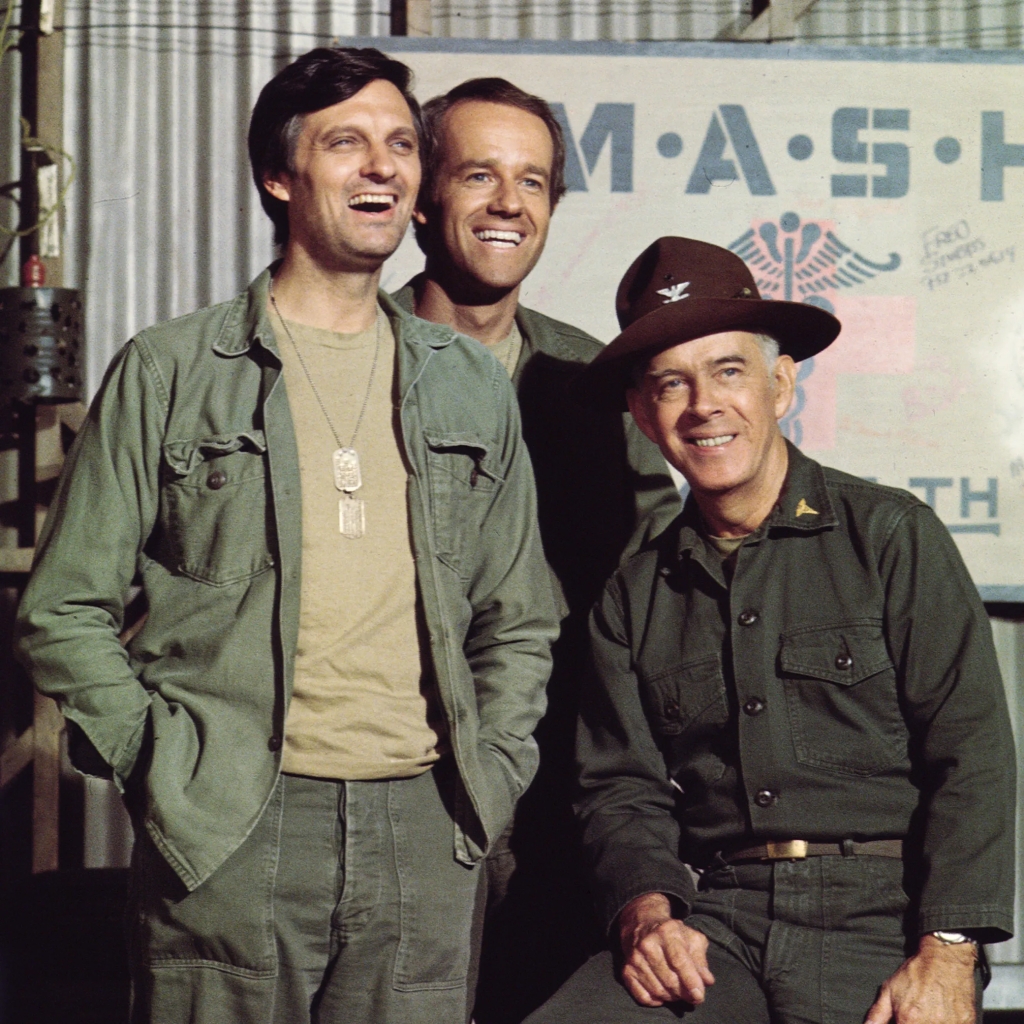“MASH,” a groundbreaking television series that ran from 1972 to 1983, transcended the boundaries of conventional sitcoms, becoming a cultural icon and one of the most beloved shows in television history. Developed by Larry Gelbart and inspired by the 1970 Robert Altman film of the same name, “MASH” succeeded not only as a comedy but also as a powerful commentary on war, humanity, and the human spirit.
The success of “MASH” can be attributed to several key factors, beginning with its unique blend of genres. While fundamentally a comedy, the show seamlessly integrated elements of drama and tragedy. Set against the backdrop of the Korean War, “MASH” explored the lives of the staff at the 4077th Mobile Army Surgical Hospital (MAS*H), a medical unit tasked with treating wounded soldiers. This juxtaposition of humor and the harsh realities of war provided a fresh and compelling narrative that resonated with a diverse audience.

One of the show’s defining features was its ability to balance humor with poignant social commentary. “MAS*H” used the absurdity of war as a lens through which to examine the complexities of human nature. The characters, such as Hawkeye Pierce (played by Alan Alda), Trapper John McIntyre (played by Wayne Rogers), and B.J. Hunnicutt (played by Mike Farrell), became emblematic of the show’s unique approach to storytelling. The camaraderie and coping mechanisms employed by the characters served as a reflection of the resilience of the human spirit in the face of adversity.
Furthermore, “MAS*H” was known for tackling social and political issues head-on, addressing topics such as the anti-war sentiment prevalent in the 1970s, the impact of military bureaucracy, and the moral challenges faced by medical professionals in wartime. The show’s ability to blend humor with thought-provoking narratives set it apart from traditional sitcoms, creating a compelling viewing experience that resonated with a generation grappling with the aftermath of the Vietnam War.
The ensemble cast of “MAS*H” played a crucial role in its success. The chemistry and dynamic performances of the actors brought the characters to life, endearing them to audiences and creating a genuine connection. Alan Alda, in particular, emerged as a central figure, both in front of and behind the camera. His portrayal of Hawkeye Pierce not only contributed to the show’s comedic brilliance but also brought a depth and sincerity that elevated the character-driven storytelling.
The impact of “MAS*H” extended beyond the screen, with its iconic theme song, “Suicide Is Painless,” becoming synonymous with the show. The series finale, “Goodbye, Farewell and Amen,” aired in 1983 and remains one of the most-watched episodes in television history, further solidifying the show’s place in popular culture.

In conclusion, “MASH” achieved cultural icon status and became a hit due to its innovative approach to storytelling, its ability to blend humor with social commentary, and its exploration of the human experience in the midst of war. The show’s enduring popularity is a testament to its timeless themes, well-drawn characters, and its ability to connect with audiences on both an emotional and intellectual level. “MASH” not only entertained but also challenged and enlightened, leaving an indelible mark on the landscape of television and cementing its legacy as a cultural phenomenon.
